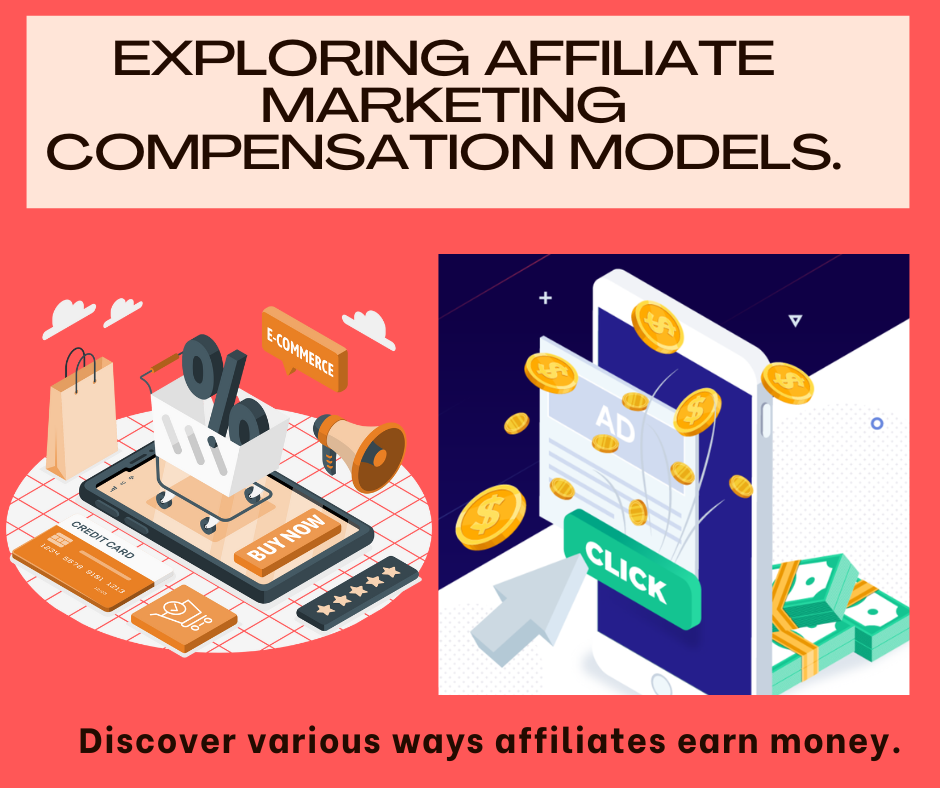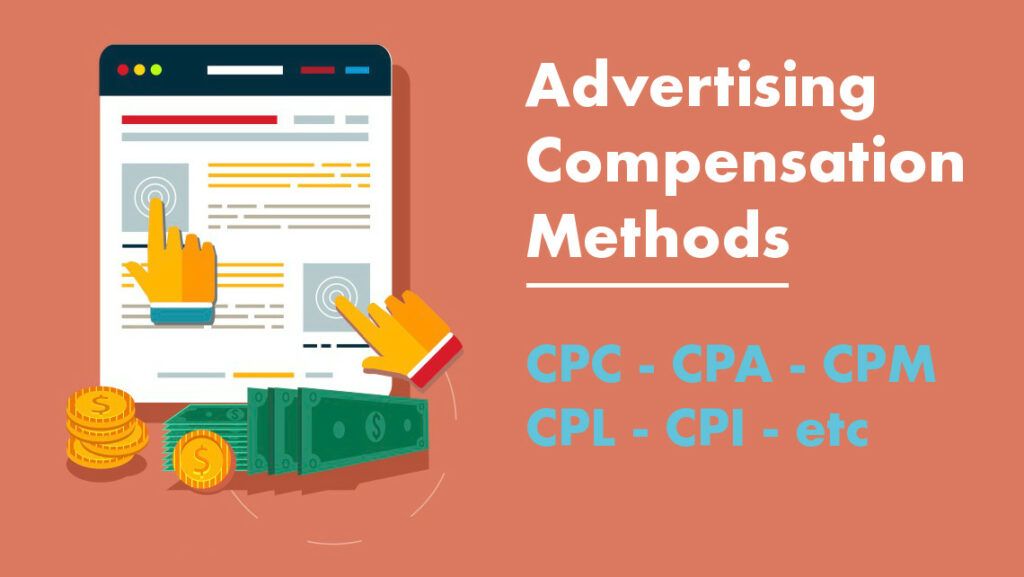Discover how online advertisement is boosting affiliate revenue, driving more clicks and conversions, and transforming the way businesses grow.

Online Advertising and affiliate marketing
Affiliate marketing is one of the types of performance-based marketing in which a business rewards one or more affiliates for each visitor or customer brought by the affiliate’s own marketing efforts. Did you know that affiliate marketing does not stop at promotion of the merchants products/serves? Actually, affiliate marketing may overlap with other digital marketing strategies such as: organic search engine optimization (SEO), paid search engine marketing (PPC – Pay Per Click), e-mail marketing, content marketing, as well as display advertising.
In this post i show you how Affiliates can integrate both their classical products/services promotion campaigns with display ads and earn revenue by any of the advertising compensation models here-below discussed. So, here we go…….
Overview of the Online Advertisement models
Online advertising is one of the ways either affiliates or other businesses having a presence online, in other words, with a website, can earn revenue from publishing paid advertisements placed on their websites by various categories of advertisers. In affiliate marketing the advertiser could be a merchant. As such, various categories of websites promoting different products, brands, and services, normally increase revenue by allowing companies/advertisers/merchants to place advertisements on either landing pages or the contents on the publisher’s/affiliate’s website.

These adverts can be of interest to the web user/visitor, who will click on them and follow either the hyperlink or the sponsored link and then be navigated to the advertiser’s website. Once this is achieved, the website hosting the advert is compensated/ rewarded/paid for the impressions/clicks generated from the actions of the user/visitor on the advertisement.
Also, note that for a website to attract companies to place adverts on it, it must be popular, with very good traffic, meaning that such websites attract many visitors, who may also double as potential customers. In essence, Ad revenue is a form of compensation for the action performed by the user/visitor who browsed another website other than that of the Ad-advertiser.
In this post, I describe the various method of advertisement compensation or revenue sharing models that any affiliate may find useful for employment Ad revenue strategy.
Advertisement Compensation/Revenue Sharing Models
The Advertisement compensation/ revenue sharing models depend on the action required by the advertiser, the user/visitor to undertake before the marketer/publisher/affiliate should be compensated for displaying the advertisement. Accordingly, the following models have been identified and are being used by several businesses that pitch adverts on the marketer’s websites. Included are:
1. Pay per click (PPC)/Cost per click (CPC) Advertising compensation model.
In this model the marketer/publisher/affiliate, who may happen to operate a popular website, allows businesses/companies [merchants or advertisers] to advertise on his/her webpages/content pages. In return, the marketer [publisher/affiliate] receives payment each time a user/visitor on the marketer’s website clicks on the advertisement a certain amount revenue as agreed. Therefore, this model is called Pay per click [PPC] or Cost per click [CPC].
In other words, the advertiser is as though he/she was hiring the space on the affiliates’ site to pitch his/her advertisement banner, and the pays for that space when the user/visitor clicks on the banner and perhaps become a customer!!
Moreover, Pay per click [PPC] or Cost per click [CPC] can also be called search engine marketing. This is because search engines are effectively utilized in promoting products/brands and services, by displaying them on pages resulting from keyword searches. Thus, when the advertisement targets specific keywords or keyword phrases, the PPC/CPC could be treated as a keyword or keyword phrase advertisement.
Besides, keyword or keyword phrase advertising can take any of these two forms: a) it can be a sponsored link type, whereby the advert is based on keywords entered by the user/visitor in the search engine; b) it can be contextual advertising, whereby the advertisement is based on the keywords present in the content the visitor/user is viewing. Whatever the type, every advert featured carries either a hyperlink or a sponsored link, which when clicked will navigate the web user/visitor on the marketer’s/publisher/affiliate’s website, to the advertiser’s website. Depending on the action desired, the user/visitor may convert into a customer. In the meantime, the publisher will be compensated for the visitor’s actions.
Can you provide us with typical examples where this model is used? Sure; I can. Typical examples of PPC/CPC advertising are AdSense [google], Yahoo Bing Network, etc. If I can explain further; any person (Blogger), business/rental store, affiliate, etc., who owns a website or any type of online space, can create an account with either google AdSense or Yahoo Bing Network, and other advertising providers, to display/publish their adverts on his/her sites.
Here’s the bottom line: once the adverts displayed by either Google AdSense or Yahoo Bing Network are clicked, In return, these entities [publishers/affiliates] will be paid by Google or Yahoo. Bing Network for any visitor that clicked on the adverts displayed on their pages.
Note that this model can be modified to Cost per mile (CPM), whereby the cost is estimated by every 1000 views.
2. Cost Per Sale (PPS) Advertisement Compensation Model
Under this revenue-sharing model, advertisers/merchants pay the marketers (publishers/affiliates) only when a successful sale has been made. In other words, the publisher cannot be compensated for the number of clicks/impressions, if none resulted into a conversion/purchase. Thus, this model, PPS, is the safest compensation method for advertisers [merchants] because they pay only for successful conversions.
3. Cost Per Action (CPA) Advertisement Compensation Model
This model is almost the same as PPS, but it is more diversified compared to PPS, especially in the action to be paid for. The actions may range from as easy as registration and signing for a newsletter, to signing and paying for the product/service via credit card.
Depending on what action the advertisers’ intended for the impressions or click on the advertisement, that is what a marketer will be paid /compensated for. In other words, the action may be monetary, or not, but if the desired action is taken, the publisher/affiliate/marketer displaying the advert, will be paid by the advertiser.
4. Pay Per Lead (PPL) Advertisement Compensation Model
In this type of advertisement, the marketer is compensated/paid if the web user/visitor follows the leads provided by the advertiser (merchant) within the advertisement but is promoted by the marketer/publisher/affiliate.
Such leads may include: the download of software, a file, newsletter form, watching an advert, etc., whereby, whichever lead one takes, is directed to a target website or content (s) that is/are controlled by the advertiser (merchant). In return, the advertiser (merchant) can track the performance of the marketer [publisher/affiliate] by analyzing the path taken by the visitor/user to come to the advertiser’s website or content and compensate /rewards the marketer/ publisher.
Throughout all these actions, no step involves the exchange of money on the side of the visitor/user. This is the major difference between Pay per Action (PPA) and Pay per Lead (PPL).
Which is the best model for Affiliates
I have briefly discussed the various advertising type as well as shown the compensation models that an affiliate/publisher may earn revenue when he/she displays an Advertisement of the merchant/advertiser on his/her website. I have discussed four compensation or revenue sharing models and showed that apart from pay per sale [PPS], other models seem to favor the affiliate/publisher. Even pay per action [PPA], as long as the action required is not conversion into a buyer, this model, too, is not bad for the publisher/affiliate.
That said, the most risk-free is the pay per click [PPC] or cost per click [CPC], since what matters is whether the visitor/user clicked on the advertisement!! No wonder, this model is prone to many Ad frauds.
Conclusion
As an affiliate or publisher, you can increase your revenue by displaying ads of other businesses, companies or advertisers. However, no advertiser will consider placing any ads on a website that is not popular i.e., that does not have traffic. As I pointed out earlier, a website is a must for any successful affiliates as it becomes your home/plot on the internet.
Therefore, invest much of your time into building authority sites that will attract advertisers to pitch ads on them, and in return, you will get additional revenue from these ads.
Do you want to join the many online entrepreneurs and enjoy some of these passive income opportunities? Do not waste time; being an affiliate will give freedom to do what you are passionate about, and at the same time earn revenue. The chances of growing of your website and boosting your income are limitless. However, you need to get a good training program. Among the many programs advertised on the web, we at ommegaffiliates.com, recommends Wealth Affiliates platform. You will be given a step-by-step training coupled with support from a vast number of members of this platform

For more resources you consult the following:
If you have any comments or questions, please leave them in the
comment/question box below and I will make sure you get answered
(probably within 1 hour). Thank you.
Cheers
Joseph Hawumba

As a fairly new affiliate marketer, I found your post interesting because it gave me insight into different ways to increase revenue. I have to be honest and say I hadn’t considered a couple of your ideas and found them to be thought-provoking and well worth looking into further. So, many thanks for your knowledge and for allowing us to find out more.
Hi, Thank you so much for such an encouraging comment. I would also love to read some of the ideas you have developed from reading this post. I know, for sure, that I will also benefit from them and continue to advance in the online business. THANK YOU, once again.
A comprehensive perspective on advertisements on the site. I knew little, now I know more.
I still don’t have enough traffic, I tried Google Adsens and they told me that I’m still not in order.
It is very clearly shown that you must have traffic first.
I did FB ads and I know something about CPA, CPM, CPL.
There is more to learn and especially to practice.
Respectfully
Vasile,
Vasile, thank you for this valuable comment. Yes, AdSense also told me the same. Having traffic is the only way to attract adverts to your site and then revenue should flow in. Let’s continue to work on our content and produce authority sites, then it is possible to attract advertisers. Once again thank you so much.
Very interesting and thorough! As a new Affiliate, I did learn a few things in your article and it steered me in a direction I didn’t know about, thanks. I also browsed your site and found it very complete and easy for someone who would wnat ot look into the Affiliate business. I really like your About page, it sounds honest.
Keep up the good work!
JeffBlank, thank you very much for this honest and encouraging comment. Certainly, I am working hard to see that I provide in-depth and accurate resources website for anyone who would like to go into affiliate marketing. Thank you once again, JeffBlanck
Thanks for identifying the different ads revenues for affiliate marketers. Yes, I really prefer PPC or CPC to other systems of compensation. You are paid anytime a visitor clicks on your ads. On the contrary, it seems to be very compensated with PPL system because if you don’t have proper leads, well…it’s a shame! But you must also underline that not all clicks are equal in PPC OR CPC. When you come from Africa, your click has less value than US visitors…
Thank you once again for this additional information concerning the “weight” of the click i.e., the click from Africa vs one from America. I will highlight it during regular updates. Also PPL, somehow intersect with PPC, although PPL is really concerned with providing viable leads. Thank you so much one again
My affiliate marketing website is barely 3 years old and it’s not making that much income. So, I’m thinking of online advertisement to increase traffic and ultimately boost affiliate revenue. I just have no idea which advertising techniques to use.
I think PPC is very common; I’m just not sure what are the requirements to get accepted, for instance, Google AdSense. Don’t they require a certain number of average website visitors before approving? Can I combine PPC with other affiliate links like Amazon?
I am concerned that some website visitors would shy off because of too many Ads. I for one gets turned off by websites full of Ads. ☺
Anyway, thank you for sharing these tips to make more money with our affiliate website.
Hi Alice, thank you for this comment. I wrote this post from an angle where the Affiliate/Publisher is the one hosting Advertisements and getting paid by the advertisers for impressions/clicks made. As I pointed out, your website ought to have good traffic. Try to register for google AdSense and if google deems your traffic fine they will start to advertise on it. I agree with you, if they are so many adverts, the site does not look good.
Sure, even with adverts on your site, you can continue to promote products of other affiliate partners such as Amazon. Thank you once again for the comment.
Thank you for this article. I have been dabbling with Affiliate marketing for a while, but there are a lot of terminologies thrown around without much explanation. Your article clearly defined a few things that I had either an unclear understanding of or in one case one that had a total misconception of.
Hi, Mike, I am happy that you have gotten some useful information from this post. thank you for your comment